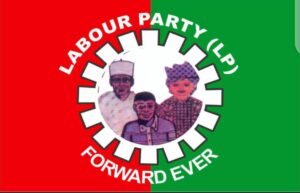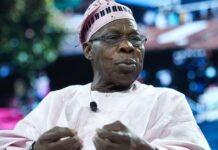Dr. Sam Amadi, the director of the Abuja School of Social and Political Thought, expressed grave concerns regarding the lack of a coherent ideological vision among political parties in Nigeria. He articulated that without a clear direction, the nation risks collapse due to ongoing maladministration and the mismanagement of its resources, particularly if these issues persist over the next three years.
Delivering a keynote speech at a capacity-building workshop organized by the Political Commission of the Nigeria Labour Congress (NLC), Dr Amadi lamented the deterioration of political party structures, stating, “We no longer possess the luxury of well-managed parties.” He characterized political parties as mere Special Purpose Vehicles (SPVs), utilized solely to attain political office, which are subsequently neglected or poorly managed.
Dr Amadi emphasized the critical role of political parties in advancing public interest, cautioning that a failure to act as mediators in a pluralistic society could lead to politics devolving into a blatant struggle for private interests. He remarked on the alarming absence of ideological discourse within current political parties, referencing historical precedents where Nigeria’s First and Second Republics ended in a civil war and military coups, respectively, despite having a higher quality of democracy than what is witnessed today.
He criticized President Bola Tinubu for governing with an unusually small support base, declaring, “There is an extreme urgency to transition Nigeria from its current state of intensive care to a phase of recovery, revival, and regeneration.” Dr. Amadi pointed out that Nigeria is “terminally sick,” likening its situation to a patient in intensive care who is currently receiving no treatment.
The recent national protests, particularly those involving northern youths in Kano and Kaduna, illustrated the potential for unrest, reflecting a recklessness that could ignite a revolution if the prevailing hunger and hopelessness continue unabated. Dr. Amadi advocated for electoral reform and a “real and radical party restructuring,” highlighting the Labour Party’s potential to lead the necessary reforms to address Nigeria’s pressing challenges.

He underscored the Labour Party’s importance in fostering economic and social development, asserting that a functioning democracy is linked to a good political party system.
In a related commentary, the acting chairman of the NLC Political Commission, Prof. Theo Ndubuaku, attributed Nigeria’s developmental hurdles to its fragmented political landscape.
He called for a comprehensive political reconstruction, emphasizing the need for committed leadership anchored in ideological and pragmatic principles to mitigate the effects of years of poor governance.
Prof. Ndubuaku reaffirmed the NLC Political Commission’s dedication to transforming the political narrative through proactive engagement rather than mere rhetoric. He highlighted the essential role of knowledge in shaping effective political thought and action, which led to the development of a Workers’ Charter of Demands in anticipation of the 2023 general elections. This Charter addressed a broad spectrum of social, economic, and political issues and served as a tool for engaging candidates across various political platforms.
The NLC Charter of Demands emerged as a unifying framework for promoting issue-based politics and enhancing public participation during the 2023 elections.
Prof. Ndubuaku noted that the outcomes of their political engagements provided Nigerians with measurable criteria to evaluate the performance of elected officials, particularly concerning critical issues such as the petrol subsidy and fair wages for workers.




